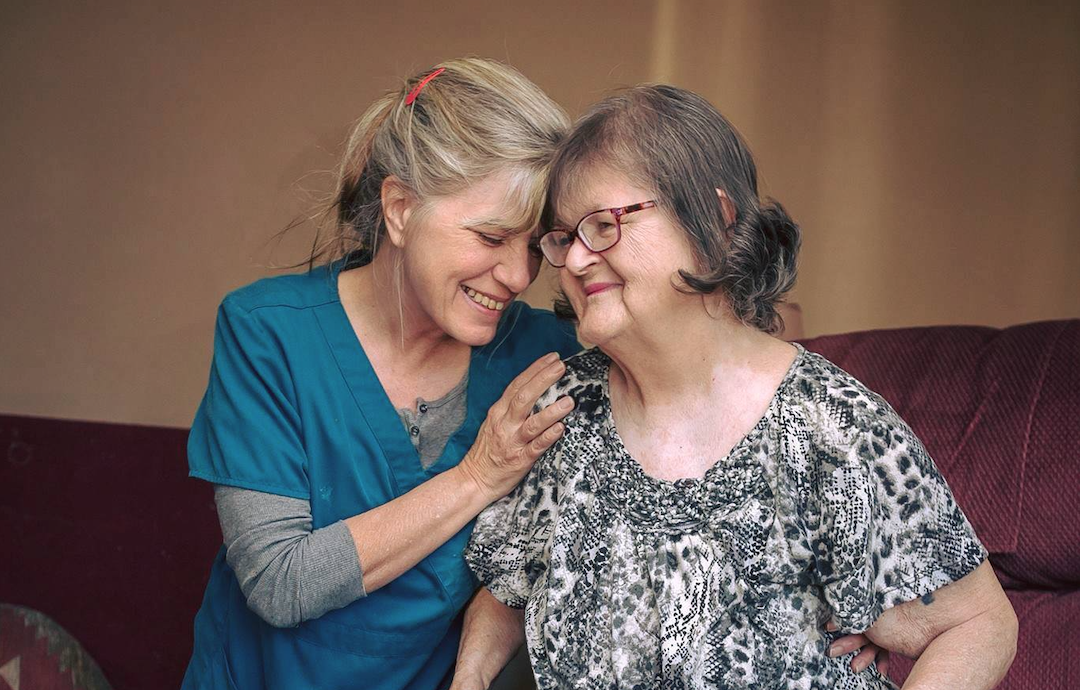Caring for Caregivers
As a social scientist with more than 10 years of conducting social health research, my goal has always been to investigate, design, and implement sustainable health programs guided by listening to people’s real needs, especially those most vulnerable to poor health outcomes. End-user obsession is the guiding principle of all the work I do as a Senior Program Manager of Research Insights and Innovation – Health and Safety, at the SEIU775 Benefits Group.
In 2019, I took on the initiative to implement a physical activity program at SEIU775, whose end goal was to help manage chronic disease among paid caregivers to older adults and people with disabilities in Washington State. I conducted a series of 6 focus groups across 3 counties in Washington to understand the barriers and facilitators of physical activity as a behavior change strategy to address chronic disease management. However, after conducting the focus groups and analyzing the data, it was evident that a program focused solely on physical activity would not be successful with caregivers.
So what prompted a change in focus?
During each of the focus groups, caregivers explicitly voiced a need for a holistic wellness program rather than a program focused solely on physical activity. The caregivers specifically asked for a program that integrates physical activity with nutrition, sleep, weight, and stress management. The program had to have the following capabilities: an activity tracking device for self-accountability, a platform to connect with other caregivers, unlimited access to coaching for motivation, goal setting, accountability, support, and problem-solving. To meet these needs of our caregivers, I partnered with Fitbit. Their health and wellbeing solution had all the components that caregivers had asked for and could deliver a successful, holistic, chronic disease management program.
Fitbit Go!
In 2019, SEIU775 Benefits Group launched a four-month feasibility pilot named Fitbit Go! The program saw high coaching engagement rates, with 61.7% of participants engaging with their health coach*. This was a big win, given the low digital literacy** in the caregiver population. Such a high engagement rate was made possible by Fitbit and SEIU775 Benefits group working together to create several innovative strategies that would help users engage. Device adoption was driven by Fitbit’s brand name and the co-creation of device-specific user guides (extensively user-tested with caregivers) to help participants install the Fitbit software, connect with the Fitbit device , and sign up on the program dashboard. Program engagement was driven by: continuous sharing of insights based on data from the SEIU775 Benefits Group’s program-specific dashboard, proactive outreach from the Fitbit health coaches, regular sharing of Fitbit’s marketing and communication materials, and identification by coaches of what works and what doesn’t to help drive program engagement
Path to success
All in all, collective actions and a strong organizational partnership were critical to the success of the program, as well as Fitbit’s focus on the customer and easy access to data.
Customer obsession: Fitbit’s Customer Success Team truly embodies the philosophy of customer obsession. The team heard our concerns and adapted the program to meet our unique customer needs. This included adapting the onboarding process, communication materials, and priming the coaches to address caregivers’ individual needs.
Easy access to data: As a program manager and a researcher, what’s most important to me is access to data to make evidence-based decisions. The seamless access to data and visualization tools via the Fitbit program dashboard was integral to make decisions on communication strategies, using the best principles of health communication, improving program engagement, and monitoring program performance.
The end product Fitbit Go! pilot successfully changed behavior and showed measurable impacts on caregivers’ health outcomes and overall quality of life. Fitbit recently shared these results in a case study, Caring for Caregivers.
I want to acknowledge the critical roles played by my colleagues at SEIU775 Benefits Group, Beth Minker and Lucy Koshewa and the Marketing and Communications team in the success of the feasibility pilot, Fitbit Go!
* Engaged = they interacted with their coach at least once a month
** Nearly half of the population had reported in a past survey that they might need help setting up new electronic devices.
______________________________________________________________________________

Subharati Ghosh
SEIU 775 Benefits Group, Senior Program Manager,
Research Insights and Innovation
